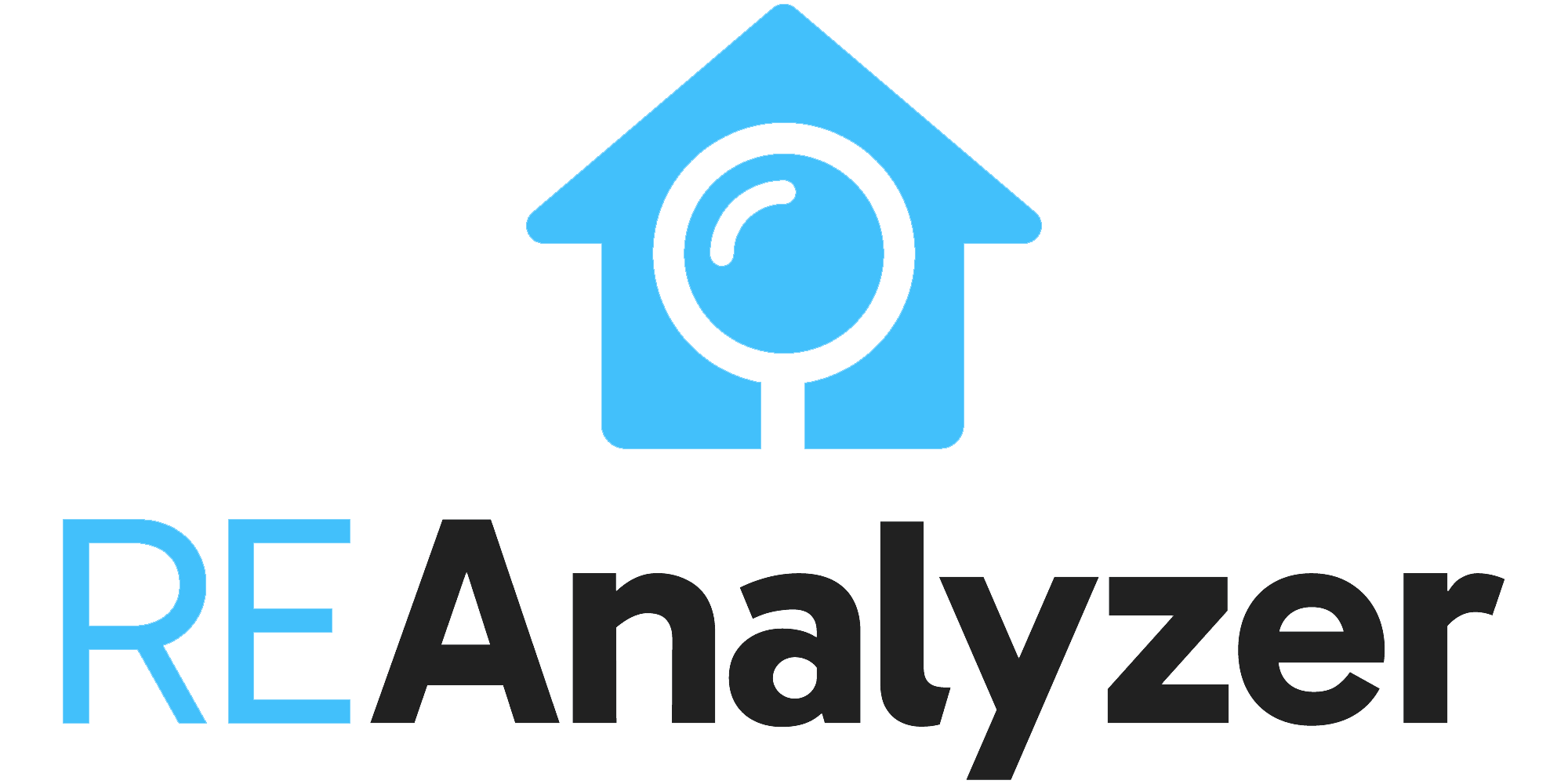A Beginner's Guide to Real Estate Investing
Published by Zack, CRE Properties on November 26, 2023
Starting your Real Estate Investing Journey can be intimidating when you first get started. In the beginning, everything may feel like it's in a language you will never understand. Questions like "How do I even find a property?" or "How do I know it is a good investment?" may be popping up in your head. If you are feeling this way keep on reading as our goal within this article is to remove the veil and get you on your way to becoming a Real Estate Investing Expert.
Four Simple Steps
Once you break down Real Estate Investing you will find it comes down to 4 simple steps. These steps can be remembered by their acronym FAFC (Find, Analyze, Fund, Close).
- Find: Find a prospective Real Estate Investment property.
- Analyze: Run the numbers to understand investment profitability.
- Fund: Gather money to purchase the investment property.
- Close: Complete the purchase of the investment property.
Finding a Real Estate Investment Property
The very first step to take to begin Real Estate Investing is to find a potential property to invest in. This property doesn't need to be a cash cow and you'll often find when you take the property to the Analyze step it won't turn a profit and you go back to the Find step again. This is often referred to as your Deal Pipeline.
There are over 5,000,000 properties sold in the United States each year so you can imagine there are a lot of properties to look through. This is why it becomes very important you build a pipeline that can quickly determine at a glance whether a property is worth looking further into during the Analyze step. Don't be intimidated! There are many tools free and paid to help you build this pipeline with ease.
Below are a few of our recommended products to help you sort through all these properties. One vital thing to understand is the difference between On Market and Off Market Properties.
- On Market: Properties that are actively listed on the MLS, typically with a Real Estate Agent, and highly motivated sellers.
- Off Market: Properties that are not actively for sale and typically require marketing efforts to convince owners to sell.
For more information regarding On and Off Market Deals check out our blog post Mastering the Market: Understanding On-Market and Off-Market Real Estate!
On Market Real Estate Tools
1. RE Analyzer
RE Analyzer offers the Advanced Property Search to help investors fine-tune their deal pipeline to pre-filter properties based on their criteria. Along with typical filters like price and size they also provide their proprietary Minimum Monthly Rent Ratio and Minimum % Below Estimated Value search criteria.

2. Zillow
Zillow is a fantastic tool to quickly search real estate listings in your area. Their search works incredibly fast and offers a lot of great information about active properties. Zillow is intended for home buyers and does not offer many investor friendly search filters.
3. Realtor
Very similar to Zillow, Realtor is another tool that is focused on home buyers and offers great searching capabilities with limited filters.
Off Market Real Estate Tools
1. PropStream
PropStream is a Real Estate Data Service that allows for very sophisticated research of all existing properties regardless if they are currently for sale. This is especially beneficial for Off Market properties as you can compile and later contact property owners through this platform to potentially purchase their home before they list them on the MLS.
2. BatchLeads
BatchLeads is very similar to PropStream and offers many of the same features and capabilities. As with PropStream, this product is also focused on providing extensive research tools to find and market towards Off Market properties and their owners.
Analyzing a Real Estate Investment Property
Once you have pre-filtered properties coming through your Deal Pipeline the next step is to begin a deeper analysis of the property to understand its profit potential. Typically this process is a bit more extensive. This is why first filtering down your prospects in the Find step can be such a time saver.
There are many types of Real Estate Analysis depending on your goals and what you plan to do with the property. Some examples are Turn-Key Rental, Flip, Buy, Rent, Rehab, Refinance, Repeat (BRRRR), and Wholesale. As with finding properties, there are many tools you can use to help simplify and speed up this process.
Analysis Tools
1. RE Analyzer
The Property Analysis Suite offered by RE Analyzer is a collection of tools, forms, and systems included as a FREE feature for all users. This suite includes analysis tools for all of the above-mentioned types of Analyses and is continuing to grow its feature set. These tools are aimed at demystifying property analysis for investors of all skill sets from Beginners to Experts.

2. DealCheck
DealCheck is a Real Estate Investment tool that offers a suite of Property Analysis tools to help empower any Real Estate Investor. Similar to RE Analyzer, DealCheck offers tools for analysis of many types of Real Estate Investment strategies and is catered to investors of all skill levels.
Funding a Real Estate Investment Property
Once you have found and analyzed a prospective property and have determined you are ready to make the move to purchase, it is time to secure funding. Funding is the source of cash that will be used to purchase the property. There are many different approaches to getting money together. So much so that there is an entire skill set named creative financing that is solely focused on finding new and innovative ways to secure cash. This unfortunately exceeds the knowledge of this article, but we will be explaining some more straightforward sources below!
Types of Funding
1. Your Cash
Naturally, your bank account is the most simple source of funding for a real estate investment. This typically comes with no strings attached and will give you the most freedom. However, this is often not a very scalable solution to growing your wealth quickly as you will have too much capital tied up in each of your deals. This approach also will result in a very low Cash on Cash Return (CoC). This metric in simple terms is the percentage of money you make based on how much you put in. Less money means a higher return percentage on gains. This is a very strong metric for Real Estate Investors to keep track of to understand how efficiently they are allocating their money.
2. Private Money Loans
This type of funding is exactly how it sounds, loans from private individuals. In other words, loans from people who are not part of a financial institution or bank. These are the bread and butter of successful Real Estate Investors as they aren't governed by the rules and regulations that banks are. In this, you can become creative and create terms that best suit each investment. Furthermore, building relationships with these individuals could open up the potential for massive funding and multiple deals to scale your business.
3. Conventional Bank Loans
If you are a homeowner you are most likely familiar with this funding source. These loans are very similar to the mortgages offered on primary residences aside from some minor details depending on the lender. These loans are governed by the rules and regulations set by our government so the opportunity to be creative is quite limited. Most nationwide bank chains will offer the same loans as they plan to sell them to the Secondary Mortgage Market. These loans are typically very stiff and do not offer good incentives for investors. Local lenders may sometimes keep their loans in-house which lets them operate more like a Private Money Loan above. A great tool to find local lenders is BankLocal where you can search by your area and find lenders with large investments in small local businesses.
4. Hard Money Loans
The final funding source we will cover in this article is Hard Money. These loans are typically high-risk and short-term, however, they come with very few requirements. Typically the lender will just need to see and validate that a profitable investment is possible and they will lend the money needed. The catch here is the loans are typically very short-term, 12-24 months, and come with very high-interest rates. Some even as high as 20%. You must understand the risks of this sort of loan especially if you are a beginner investor.
Closing on a Real Estate Investment Property
Finally, you have found a property and secured funding all that is left to do is close on the property. Closing on a property is the process of transferring funds and ownership between you and the seller. There is a lot of paperwork and process that goes into this and you typically are stuck between two choices. Hiring or Becoming a Real Estate Agent.
Once the paperwork is complete and all assets have been transferred congratulations you are now the proud owner of a Real Estate Investment Property!
Continued Reading
You are well on your way to becoming a successful Real Estate Investor after consuming this article. To continue growing your skillset here are a few book recommendations that every investor should read!
How to Invest in Real Estate: The Ultimate Beginner's Guide to Getting Started
The ABCs of Real Estate Investing: The Secrets of Finding Hidden Profits Most Investors Miss
Rich Dad Poor Dad: What the Rich Teach Their Kids About Money That the Poor and Middle Class Do Not!
Real Estate Investing Communities
You are not alone in learning and growing your Real Estate Investing skillsets! Joining active online communities can help solidify the things you learn and help answer any questions you may have!
- Join the RE Analyzer Discord to chat live with me and our growing community about everything Real Estate!
- Check out BiggerPockets the largest Real Estate Investment community forum on the web!
Conclusion
If you have made it this far congratulations on completing the Beginner Guide to Real Estate Investing! I hope you have found this article useful and can reference it as you grow your investment business.
I'd love to chat with you more and help each other along our investment journeys. You can reach me in the RE Analyzer Discord, via Email at support@thereanalyzer.com, or at any of our social media accounts found at the bottom of this page. Best of luck and I can't wait to see the deals you make!
Latest Posts
Discover key strategies for real estate investing: Learn the difference between On-Market and Off-Market deals and how to find and negotiate them.
Enhance your real estate investment journey with my top 8 book recommendations, designed to foster growth in success and wealth.
Unlock real estate investing success with our beginner's guide: 4 easy steps (FAFC) and essential tools to find, analyze, fund, and close great deals.
Supercharge Your Real Estate Investment Strategy Today!
Try out RE Analyzer for Free and find out if it is right for you before spending a dime.




